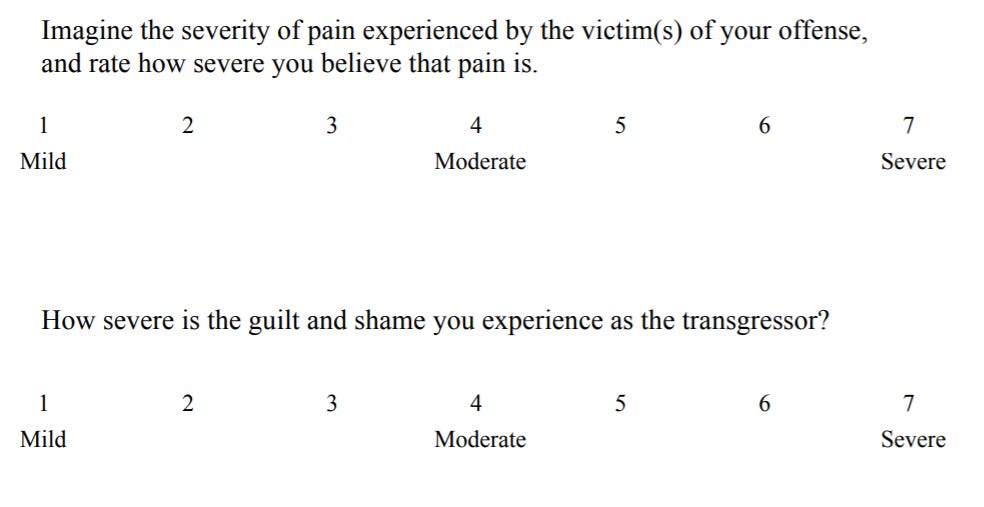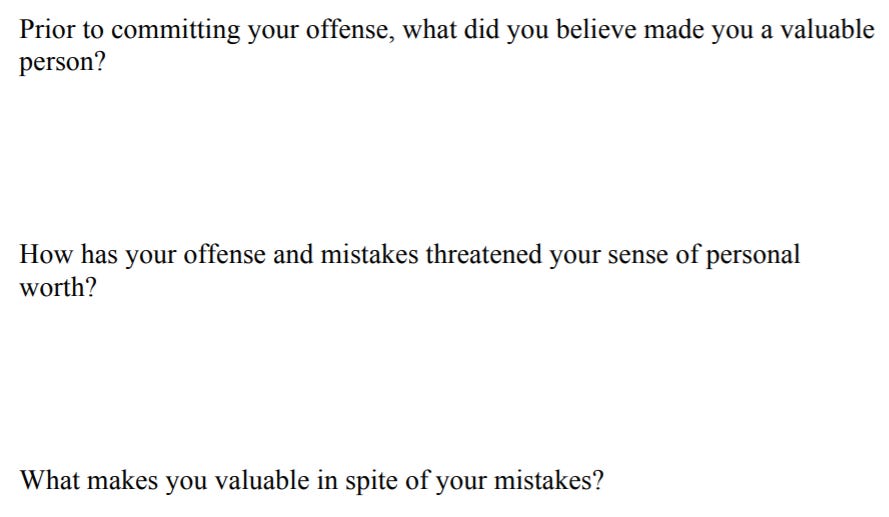🙏 The vulnerable, messy process of forgiveness.
How to heal from workplace grudges + self-forgiveness practices to try.
Just off the top of your head, how many times have you felt annoyed by a co-worker? More specifically, how many have you gotten in a conflict with? Hopefully, the number is low or even 0.
Holding grudges over others, especially those you work with, is almost the equivalent of drinking rat poison and waiting for the rat to die. It will consume you and eventually intervene with your work productivity.
Feeling resentment is human nature, but there are strategic ways to feel it without sabotaging your own success and growth.
The root of the problem
Your temperamental styles and inability to negotiate conflict could be one reason why you may be prone to keep grudges. Another huge factor of why people hold grudges can also be traced back to a low level of assertiveness in their communication style.
Before we go to the final step of forgiveness, let’s look at the common reasons why people form grudges towards others in the first place:
Unrealistic expectations. Not everyone is subjective to this type of grudge, but psychology shows that emotionally generous people usually fall into these traps.
Reaching your limit. It’s the buildup of hurtful feelings and wrongdoings that have led you to cling to feelings of resentment.
The green-eyed monster. Whether you realize it or not, your dislike towards someone could stem from jealousy.
FOMO. The fuel for grudges can start with the smallest of grievances, like continuously being left out or feeling like you’ve been exploited.
Disagreements and assumptions. If you don’t discuss the matter with the other person, it becomes easy to project negativity onto them.
Read more about internal factors that lead to grudges in the full article here.
Navigating the pain
NYC-based writer, Sarah Montana, has shared in her TEDx Talk her heavy experience with forgiveness. In her extreme case, her brother and mother were murdered when she was 22 years old. Many years later, she finally set herself free from the pain and the trauma through real forgiveness.
Here are some takeaways from her moving speech:
Most of the time, people forgive too quickly. This is because:
They think that they must forgive others despite still feeling the pain very strongly, as it will make them a good person.
They feel pressure from others to forgive, and do so due to people-pleasing reasons.
They assume that forgiveness is a shortcut for healing, and forgive only to avoid the uncomfortable process of healing.
Realistic steps you can take to forgive:
Be specific. Know exactly what you are trying to forgive, as you can not forgive something that did not happen to you.
Assess your damages. How did the other person’s action impact you, directly? Focus on your own disadvantages, and not others’.
Pinpoint what you need. Whether it be writing your side of the story, or asking for an apology or an explanation, be clear of what you need.
No expectations. Real forgiveness has to come with no expectations. Do not expect a certain outcome, a reply, or a change from the other person.
Watch the full profound TEDx Talk titled “The Real Risk of Forgiveness–And Why It’s Worth It” here.
Looking inwards, deeper
Forgiveness is not only deserved by those who have wronged us in the past. Even with every mistake, failure, or regret, we are also deserving of our own forgiveness. Everett Worthing
Pton, a professor from the Virginia Commonwealth University, has come out with a self-directed learning workbook to guide us in our self-forgiveness journey.
The workbook follows Six Steps to Forgiving Yourself, complete with their own practices:
Recall an Offense
Describe a single offense/regrettable act that you would like to focus on.
Practice: Identify the consequences. Reflect by placing an “X” next to each of the ways that the offense you described impacts your life now.
Repair Relationships
Make amends with those whom we have harmed.
Practice: Injustice gap. Write the first names of people who experienced injustice as a result of your offense, and answer the following statements.
Rethink Rumination
Work on experiencing the emotional restoration of positive self-regard.
Practice: Rumination quiz. Mark an item “True” if it is a good description of you. Mark an item “False” if it is unlike you.
REACH Emotional Self-Forgiveness
REACH—Recall, Empathize, Altruistic Gift, Commit, Hold.
Practice: Finding forgiveness. Two options are accurate definitions of forgiveness, circle the correct definitions of self-forgiveness.
Rebuild Self-Acceptance
Learn to accept yourself as a flawed but valuable person.
Practice: What makes you valuable? Answer the following questions truthfully.
Resolve to Live Virtuously
We must responsibly forgive ourselves by connecting with our values and restoring our positive sense of self.
Practice: Reconnecting to what’s important. Identify your Top 5 personal values and write a brief sentence about what each value means for you.
Download the full workbook for free with complete exercises for each step here.
How has your experience been with forgiveness? Do you find it easy to forgive others, or almost impossible?
Though we all have our own valid reasons to feel resentment and distant ourselves from some people, hopefully this week’s Monday Mavens edition could give a different perspective on forgiveness.
Catch you again next week!







